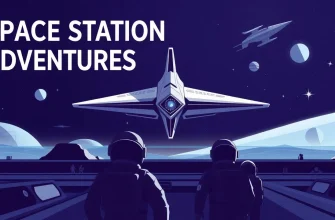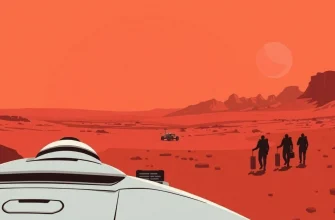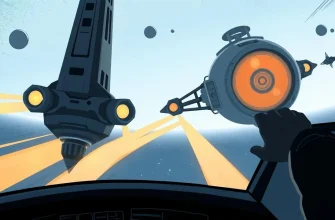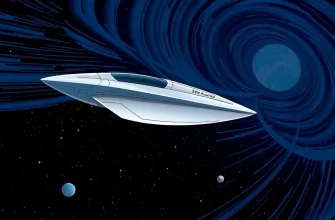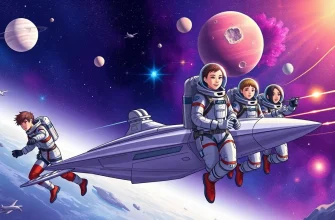Embark on an interstellar journey with these 10 films that capture the essence of space exploration. From the vast emptiness of space to the thrilling encounters with alien civilizations, these movies offer a blend of science fiction, adventure, and human drama. Whether you're a fan of realistic space travel or prefer the imaginative leaps of sci-fi, this collection has something for everyone, showcasing the wonder and dangers of venturing beyond our planet.

2001: A Space Odyssey (1968)
Description: Stanley Kubrick's masterpiece explores themes of human evolution, technology, and the unknown. The film's depiction of space travel, especially the journey to Jupiter, remains one of the most realistic and visually impressive in cinema history.
Fact: The film was developed in collaboration with NASA, and many of its predictions about space travel have since come true.
 Watch Now
Watch Now 
Apollo 13 (1995)
Description: This Ron Howard-directed film recounts the real-life Apollo 13 mission, where astronauts faced life-threatening challenges after an explosion on their spacecraft. It's a testament to human ingenuity and teamwork in the face of adversity.
Fact: The film's tagline, "Houston, we have a problem," became a cultural catchphrase. The actual mission control room was recreated for authenticity.
 Watch Now
Watch Now 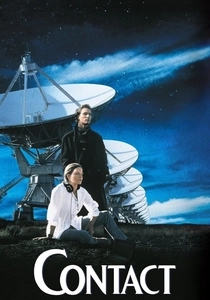
Contact (1997)
Description: Based on Carl Sagan's novel, this film follows Dr. Ellie Arroway's journey to make contact with extraterrestrial intelligence. It's a thoughtful exploration of the search for life beyond Earth and the personal costs of such a quest.
Fact: The film's depiction of the Very Large Array in New Mexico was so accurate that it was used in educational materials about the facility.
 Watch Now
Watch Now 
Event Horizon (1997)
Description: A rescue mission to a spaceship that disappeared into a black hole turns into a nightmarish journey. This film combines horror with the unknown aspects of space travel, making it a unique entry in the genre.
Fact: The film's director, Paul W.S. Anderson, drew inspiration from H.P. Lovecraft's cosmic horror for the movie's eerie atmosphere.
 Watch Now
Watch Now 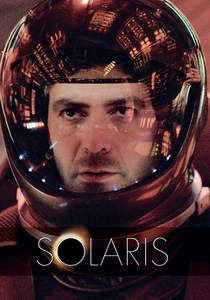
Solaris (2002)
Description: Steven Soderbergh's remake of the Soviet classic explores the psychological effects of space travel on a crew investigating a mysterious planet. It delves into themes of memory, identity, and the human psyche.
Fact: The film was shot in a continuous take, giving it a unique, dreamlike quality.
 Watch Now
Watch Now 
Sunshine (2007)
Description: Danny Boyle's film follows a team of astronauts on a mission to reignite the dying sun with a massive bomb. It's a tense, visually stunning exploration of human sacrifice and the beauty of space.
Fact: The film's depiction of the sun was created using real solar imagery, making the visuals both beautiful and scientifically accurate.
 Watch Now
Watch Now 
Star Trek (2009)
Description: J.J. Abrams' reboot of the iconic franchise introduces us to a young James T. Kirk and Spock as they embark on their first adventure aboard the USS Enterprise. It's a thrilling ride through space with action, humor, and heart.
Fact: The film was designed to appeal to both new viewers and long-time fans, with a mix of new and familiar elements from the Star Trek universe.
 Watch Now
Watch Now 
Interstellar (2014)
Description: Christopher Nolan's epic tale of a team of astronauts traveling through a wormhole in search of a new home for humanity. The film's realistic portrayal of space travel and time dilation makes it a must-watch for those fascinated by the science behind space exploration.
Fact: The film was inspired by Kip Thorne's theories on wormholes and black holes. The visual effects team won an Oscar for their work on creating realistic space environments.
 Watch Now
Watch Now 
Gravity (2013)
Description: A visually stunning film where Sandra Bullock's character, Dr. Ryan Stone, must survive in space after a disaster destroys her shuttle. The film's depiction of zero gravity and the isolation of space is both thrilling and terrifying.
Fact: Most of the film was shot in a specially designed rig to simulate zero gravity, and Bullock spent hours in this setup to capture the realistic movements.
 Watch Now
Watch Now 
The Martian (2015)
Description: Based on Andy Weir's novel, this film follows astronaut Mark Watney, left stranded on Mars, as he uses his ingenuity to survive. It's a gripping tale of human resilience and the will to live against all odds.
Fact: NASA provided technical advice for the film, ensuring the science was as accurate as possible. The potatoes grown by Watney were real, and the film's director, Ridley Scott, even ate one.
 Watch Now
Watch Now 

